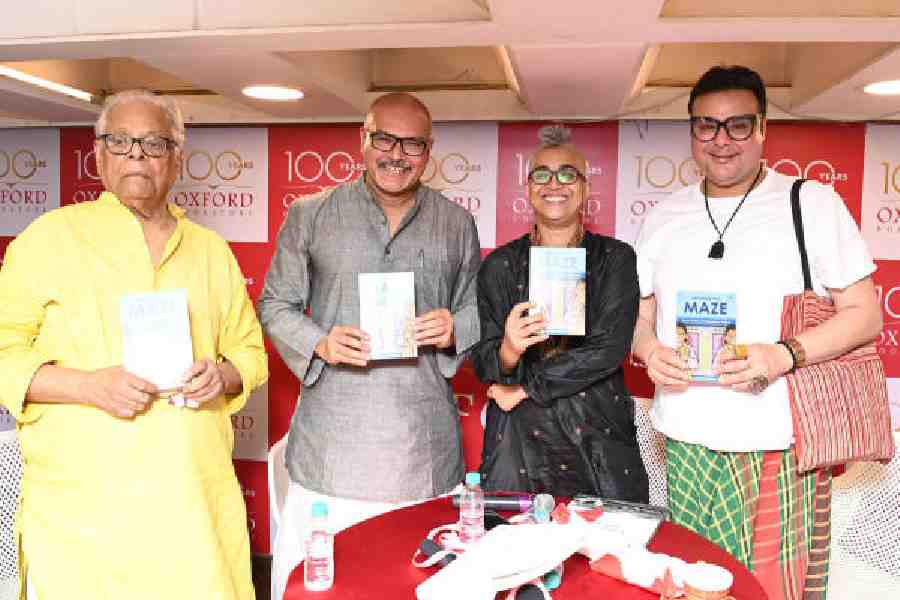Oxford Bookstore on Park Street painted itself in the colours of a rainbow on Friday evening as professor Niladri R. Chatterjee launched his book Entering the Maze, a translation of Krishnagopal Mallick’s Bengali fiction Byuhaprabesh. Chatterjee launched the book along with iconic theatre artiste Chapal Bhaduri; multidisciplinary artist Sujoy Prosad Chatterjee; and academic, author and translator Rimi B. Chatterjee, who also moderated the programme.The evening mostly saw a light-hearted and yet intense discussion on the queer narrative set by the author in the original novel, Byuhaprabesh that first came out in a little magazine called Hawa 49 sometime in 1993, and how Mallick took great care to portray gender fluidity with elan, intensity, honesty and humour, all at the same time.
Published by Niyogi Books India, what makes this book special and probably a rebel in itself is the fact that it looks at Calcutta through the eyes of a teenager, Mallick, who grew up in a convention-loving north Calcutta impacted by the ongoing World War II and his discovering of his own sexual orientation in this part of the city much inclined to gender stereotypes in those days.In Chatterjee’s words, “The fact that now we have such a narrative is what makes it so incredibly powerful. A lot of his novels were published in this little magazine called Kourab but none of them is in print now. I am hoping that now the publishers are going to wake up.”As the discussion on Mallick’s unabashedly honest storytelling of his own life was opened up to the audience, Chatterjee went on to make some revelations about his own challenges and struggles to give the novel a deserving translation for the wider audience to appreciate such a radiant narrative of the Bengali queer literature coming out of the last century.“Krishnagopal has written the book, unencumbered by the history of the queer movement and the struggles… that awareness is not there. He is unencumbered by the sense of history, which makes the writing so light. The moment I go into English, all of that history comes in. Krishgnagopal never uses the word somokami. He calls himself a homosexual. He uses an English term, and even though he uses an English term, his approach to representing sexuality is not sort of guilt-ridden and ‘oh my God what a struggle it is. We fought our battles and here we are.’ No! He is like, ‘Look, I like guys.’ The candour in his language gets weighed down by history the moment I get into the English language. For me, it was a challenge to keep that freshness, airiness and lightness in the language,” pointed out Chatterjee while humorously revealing how the great Shakespeare would come to his rescue during his translation work whenever he felt the burden of old, difficult-to-pronounce Bengali words used in the original novel.
On being asked how he would have reacted if he had got a chance to meet Mallick, theatre-artiste Chapal Bhaduri fondly said: “Maybe we would have looked at each other in the mirror.”
Reflecting on his thoughts about the book, actor Sujoy said the book probably gives a new art of looking at masculinity today. “The way we look at celebrating masculinity is absolutely crumbling down with his book,” he said.
